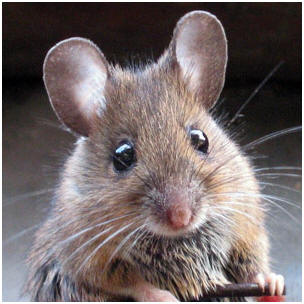|
English Language
|
To a Mouse
 Burns’ poem “To A Mouse”
Burns’ poem “To A Mouse”
is a good example of a dialect poem.
The original is on the left, the right hand side is a translation into modern Standard English
| Wee, sleekit, cowrin, tim'rous beastie, O, what a panic's in thy breastie! Thou need na start awa sae hasty Wi bickering brattle! I wad be laith to rin an' chase thee, Wi' murdering pattle. I'm truly sorry man's dominion Has broken Nature's social union, An' justifies that ill opinion Which makes thee startle At me, thy poor, earth born companion An' fellow mortal! I doubt na, whyles, but thou may thieve; What then? poor beastie, thou maun live! A daimen icker in a thrave 'S a sma' request; I'll get a blessin wi' the lave, An' never miss't. Thy wee-bit housie, too, in ruin! It's silly wa's the win's are strewin! An' naething, now, to big a new ane, O' foggage green! An' bleak December's win's ensuin, Baith snell an' keen! Thou saw the fields laid bare an' waste, An' weary winter comin fast, An' cozie here, beneath the blast, Thou thought to dwell, Till crash! the cruel coulter past Out thro' thy cell. That wee bit heap o' leaves an' stibble, Has cost thee monie a weary nibble! Now thou's turned out, for a' thy trouble, But house or hald, To thole the winter's sleety dribble, An' cranreuch cauld. But Mousie, thou art no thy lane, In proving foresight may be vain: The best laid schemes o' mice an' men Gang aft agley, An' lea'e us nought but grief an' pain, For promis'd joy! Still thou are blest, compared wi' me! The present only toucheth thee: But och! I backward cast my e'e, On prospects drear! An' forward, tho' I canna see, I guess an' fear! |
Small, crafty, cowering, timorous little beast, |
- What is lost and what is gained in the translation?
Apart from a few vocabulary items what if anything distinguishes Scots from English? - One test of whether two pieces are different languages is the test of mutual incomprehensibility. If in your view these two versions are essentially the same would you agree that one is a dialect of the other?
- Create a Scots phrase book using only examples from Burns’ "To A Mouse”.
You may also wish to read The Twa Corbies.
|
|